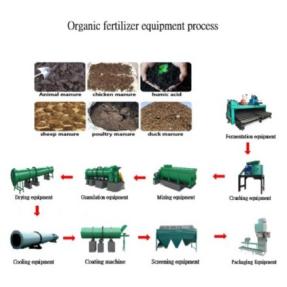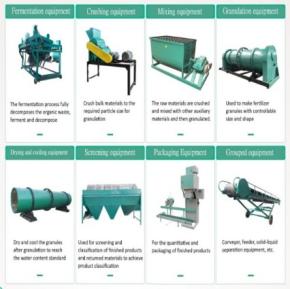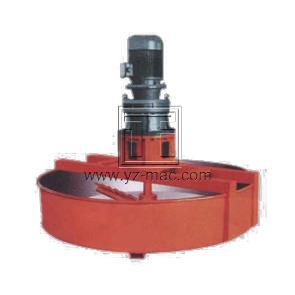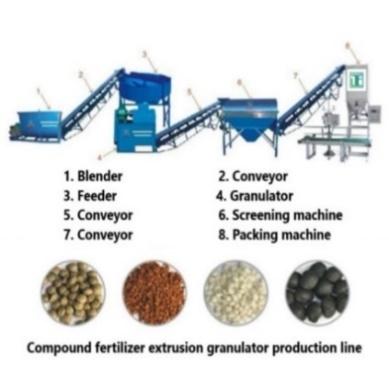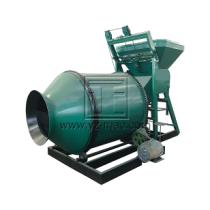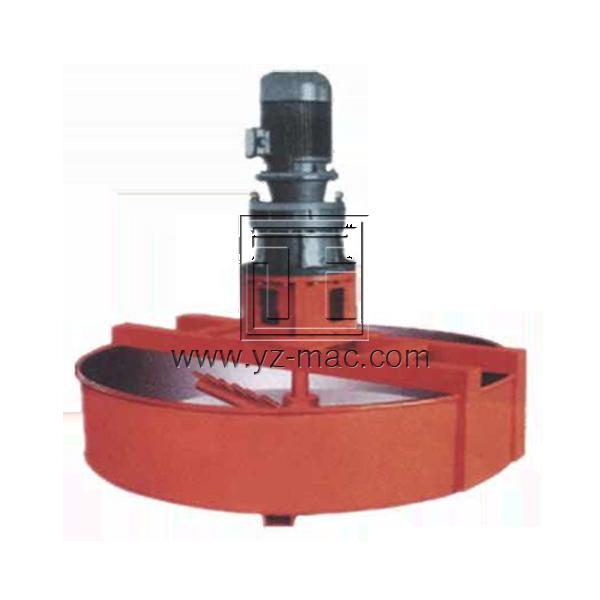Organic fertilizer granulator machine
An organic fertilizer granulator machine is a powerful tool in the realm of organic farming. It enables the transformation of organic waste materials into high-quality granules, which can be used as nutrient-rich fertilizers.
Benefits of an Organic Fertilizer Granulator Machine:
Efficient Nutrient Delivery: The granulation process of organic fertilizer converts raw organic waste into concentrated granules rich in essential nutrients. These granules provide a slow-release source of nutrients, ensuring plants receive a consistent supply over an extended period. This improves nutrient uptake, plant growth, and overall crop productivity.
Waste Utilization and Recycling: Organic fertilizer granulators allow for the effective utilization and recycling of various organic waste materials. Agricultural residues, food waste, animal manure, and other organic by-products can be processed into valuable organic fertilizers, reducing waste volumes and promoting a circular economy.
Improved Soil Health and Fertility: Organic fertilizer granules provide a balanced combination of macro and micronutrients, organic matter, and beneficial microorganisms. When applied to the soil, these granules enhance soil fertility, structure, and water-holding capacity. They stimulate microbial activity, promote beneficial soil organisms, and contribute to long-term soil health.
Environmentally Friendly: By utilizing organic waste materials as feedstock, organic fertilizer granulation reduces reliance on chemical fertilizers, thereby minimizing environmental pollution and ecological imbalances. It promotes sustainable farming practices, reduces greenhouse gas emissions, and supports the preservation of natural resources.
Working Principle of an Organic Fertilizer Granulator Machine:
An organic fertilizer granulator machine employs a variety of techniques to transform organic waste into granules. Common methods include:
Extrusion: This process involves forcing the organic material through an extrusion die or plate, where it undergoes pressure and friction. The compacted material is then cut into granules of the desired size.
Rotary Drum: In this method, the organic material is fed into a rotating drum. As the drum rotates, the material adheres to the inner surface and forms granules through a combination of rolling, agglomeration, and tumbling.
Pan Granulation: Here, the organic material is placed in a shallow pan or disc, which rotates at a controlled speed. The material undergoes agglomeration and granulation as it moves across the pan’s surface, resulting in spherical granules.
Applications of Organic Fertilizer Granulator Machines:
Agriculture and Horticulture: Organic fertilizer granules are widely used in agriculture and horticulture for crop production. They provide essential nutrients to the soil, improve soil fertility, and promote healthy plant growth. Organic fertilizers are particularly valued in organic farming systems, where the emphasis is on sustainable practices and environmental stewardship.
Gardens and Lawns: Organic fertilizer granules are suitable for home gardens, vegetable plots, flower beds, and lawns. They enhance soil quality, promote vibrant growth, and contribute to the overall health and beauty of plants.
Landscaping and Turf Management: Organic fertilizer granules are used in landscaping projects, including parks, golf courses, and sports fields. They nourish the soil, strengthen root systems, and enhance the appearance and resilience of turf.
Nursery and Greenhouse Production: Organic fertilizer granules are essential in nursery and greenhouse operations. They provide a controlled-release nutrient source for young plants, ensuring optimal growth and development.
An organic fertilizer granulator machine offers significant benefits in the realm of sustainable agriculture. By transforming organic waste materials into nutrient-rich granules, it promotes efficient waste utilization, soil health, and environmentally friendly farming practices. The granulated organic fertilizers find applications in agriculture, horticulture, landscaping, and nursery production, contributing to improved plant growth, soil fertility, and long-term sustainability.



